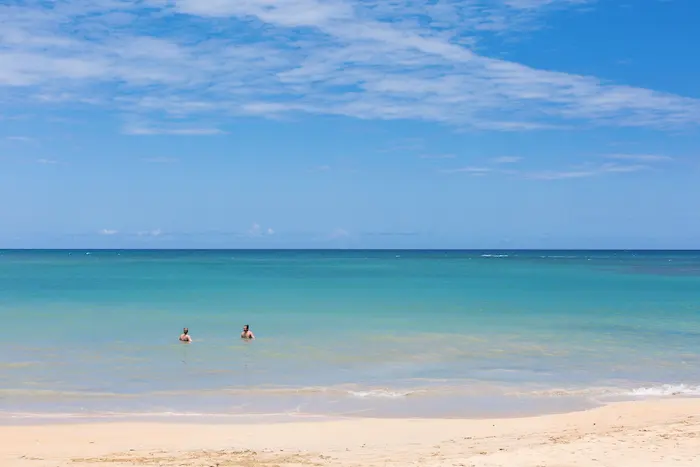Editor’s Note: Lillie Marshall has graciously shared her travel photos with us in the blog below. If you’d like to learn more about where the pictures were taken, click the links in the caption.
Sometimes all it takes to get us through the most challenging days of the school year is knowing that exciting travel is on the horizon for our upcoming vacation. But how is global exploration possible on a teacher’s salary?
Never fear — there are countless FREE and low-cost travel opportunities for your next school break that far too few educators know exist. Here are some ways you can find them!
1. Fully Funded Teacher Travel Grants!
Did you know there are HUNDREDS of fully funded travel opportunities for educators? Here is a massive list of 200 teacher travel opportunities — including the up-to-$10,000 Fund for Teachers Grant in which you design your own travel professional development.
If 200 grants is too much to wade through, here’s an excellent annotated list of 24 free travel programs for teachers, tried and tested by Kim Young, a teacher and global education expert.
Little Taj Mahal: Humayun’s Tomb, Delhi, India
Now, here’s the caveat about these grants: The application process for many of them lasts several months. That means if you are reading this article in the spring, it may be too late for THIS summer to earn full travel funding in this manner. There is good news, however, and it comes in two parts.
First, several funded travel opportunities for educators take place during other months of the year besides July and August, meaning you still have time to apply for those. For example, the TEACH Bahrain tour takes place in November.
Second, being late to apply for travel funding for this summer means you are deliciously early to apply for NEXT summer! Now is the perfect time to start perusing the programs and picking those you want to apply to, allowing plenty of time to create application essays and gather letters of recommendation. Check here for regularly updated new teacher grant listings to bookmark.
Photographing Flamingos on Bonaire
A final word about these grants: Do not be discouraged if you are not selected on the first try. In particular, it is essential that educators of color understand that these grants have historically been biased in their application process, but are slowly in the process of changing as they realize why diversity is so important. These programs need YOU, so do apply, and spread the word to people who might be interested.
2. Short-Term Teaching Abroad: Summer Camps, ESL Schools, Childcare, etc.
Even as late as May or June, fun summer jobs for teachers can be found in other countries and states. Consider summer camps abroad, short-term English language schools, or au pair childcare jobs with a tutoring component. For example, one teacher explains in this interview about two different English language summer camps for kids in Europe that employ educators.
Gate of Augustus, Ephesus, Turkey
3. Work and Accommodation Exchanges
Rather than finding a paying job, another way to travel is to exchange work for housing and other travel costs. For example, chaperoning a student trip is a free way many educators use to travel, and it can be more low-stress than one would imagine if a reliable and organized company is used.
Other examples are teaching fitness classes or working on a farm abroad, Couchsurfing (staying for free in kind people’s homes — more doable and safe than it sounds as long as you use common sense and follow best practices), home exchanges, and an option that is lots of work but gets rave reviews from people who have tried it: Living for free in Spain or Germany with this adult language camp!

O’Brien’s Tower, Cliffs of Moher
4. Self-funded Travel, Including Classes, Volunteering, Residencies, and Groups
Sometimes when educators do not land a grant or job to support vacation exploration, they give up on travel entirely. No need to do that! If you find a travel opportunity that costs money (e.g., volunteering abroad, educator residencies such as the one at Fallingwater, short-term classes abroad such as language or cooking, group travel, etc.) there are other ways to gather funding.
For example, some educators have reported that “travel hacking” through credit card points can fund for the biggest travel costs (airfare and housing), while other educators temporarily take on extra jobs like teaching English online to cover expenses.
As teachers, our time and funds are often tight, however, so looking beyond our own resources can be necessary. Donors Choose now has the option to fundraise for professional development (including travel), and other online crowdfunding sources can work as well, as can partnering with local businesses for sponsorships — particular if you can demonstrate the ways in which your travel will benefit both your students and your community.
Library of Celcus, Ephesus, Turkey
Closing Thoughts: Travel Is an Investment That Pays Off
Whatever means you use to make your vacation travel plans happen, know that travel is worth it. Not only do trips outside of our comfort zone help refresh us as educators and provide an essential international perspective that makes us better teachers, but they are also a wise career investment. Schools seek educators with global competence to effectively work with our diverse and vibrant students.
If travel doesn’t work out for this summer, take heart: there will be more opportunities for far-flung trips, but until then, it is worth it to explore tourism and global perspectives in our own cities and towns! Is there a nearby neighborhood you haven’t yet visited? Is there a restaurant or store owned by a culture you haven’t studied? Are there local classes you can take to learn about a new language or history? Are there kids who could suggest ways to interact with local locations (visiting, volunteering, etc.) that in turn might deepen your understanding of your school’s students, and yourself? Do explore!
The Taj Mahal, Agra, India — This could be you!
What about you? What travel experiences and methods do you recommend from your own experience? What questions do you have?












